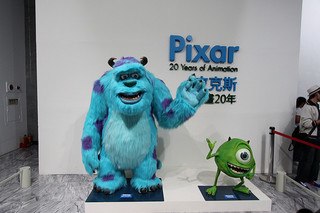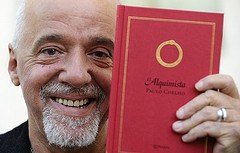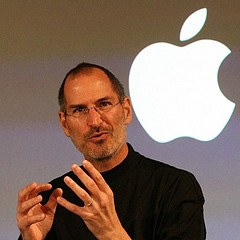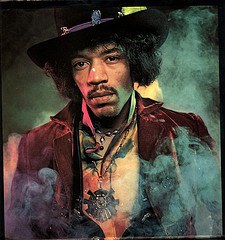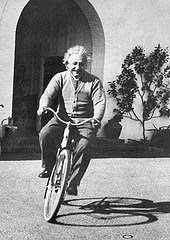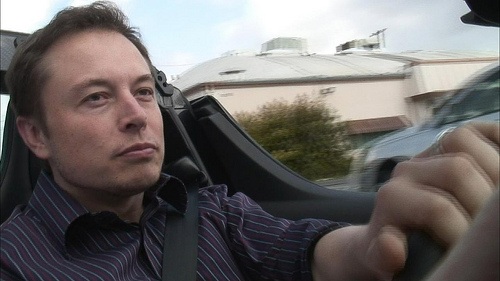Highly successful people have empowering creative habits that enable them to achieve remarkable things. Enhancing creativity can help you reach greater heights in your life, too.
According to a TIME Magazine poll, 91% of people say that unleashing creativity is vital to our personal lives and 83% believe it’s important for our professional development. But an Adobe survey shows that only 25% of us think of ourselves as creative. The good news is that we were all imaginative as children, and it’s easier to reawaken that dormant creativity than you’d think.
The ability to create isn’t just about producing great art or making scientific discoveries. It’s a skill that can be honed in any area of life, and involves learning how to view things from different perspectives, find fresh solutions to problems, and express ourselves uniquely.
Here are seven simple habits that can help you boost creativity and succeed in work and life.
1. Nurture Creative Dissent
Sir Richard Branson purposefully embeds “mavericks” into every Virgin company to ensure its success because he knows that yes men kill innovation. Likewise Ed Catmull, co-founder of Pixar Animation Studios, says that groundbreaking movies such as Toy Story and Monsters Inc. were only possible because colleagues invited criticism from each other.
Don’t be afraid to ask for feedback. For many years I was a psychologist, singer-songwriter, creativity workshop leader, and innovation consultant, all at the same time. A couple of friends warned me, “You’re spread too thin. You need to focus.” They were right. In a stroke of insight one day I realized that my songs carry the same message as my workshops, so why not sing at my talks and talk about creativity at my concerts? My life became much more streamlined and audiences love the fresh approach.
Ask people you trust, “How do you see me limiting myself?” and listen to what they say. Be open to suggestions, and breathe!
2. Follow Your Bliss
Paulo Coelho, author of the best-selling book The Alchemist, was put into a mental institution by his parents because they wanted him to be an engineer. Michelangelo was beaten by his father whenever he caught him painting because he was supposed to grow up to be a cloth merchant. Unfortunately, our true vocations and creative impulses are often crushed by people’s expectations of us.
“Gina” was a frustrated receptionist who took my creativity workshop because she was unhappy. She refused to speak the first six weeks of class for fear we’d think she was strange. She finally told us she collected stuffed animals and watched Beauty and the Beast over and over again, and her boyfriend made her give all her dolls away. I encouraged Gina to wrap her arms around this child’s world rather than turn away from it because it wasn’t “normal.” Three months later she became a kindergarten teacher.
Our creative calling often becomes clear when we embrace our passions instead of forcing ourselves to conform. What sparks your curiosity?
3. Trust Your Gut
Apple founder Steve Jobs studied calligraphy after he dropped out of Reed College. He told Stanford’s 2005 graduating class, “When we were designing the first Macintosh computer, it all came back to me. It was the first computer with beautiful typography. If I had never dropped in on that single course in college, the Mac would have never had multiple typefaces or proportionally spaced fonts.” Learning calligraphy and studying Zen Buddhism gave Jobs an aesthetic sense that still distinguishes Apple products today. “You have to trust in something – your gut, destiny…”
To access creativity, become aware of your initial hunches instead of always obeying “shoulds.” “Lauren,” a bored technical writer, used to scribble ideas for movies in the margins of her tech manuals. It was clear she wasn’t your typical office worker; she often wore bunny slippers to our workshop. I encouraged Lauren to focus on those marginalized writings (her intuition). She ended up writing, directing, and producing an internationally-distributed film. Now Lauren’s flourishing in the entertainment industry.
What would you do if you listened to the tiny voice inside?
4. Boost Your Superpowers
Jimi Hendrix was not only blessed with a unique gift for playing guitar, but he practiced ALL the time. He wore his guitar when he boarded planes and made scrambled eggs for breakfast. He became a master guitarist because he constantly sought to bolster his innate talent.
Like Jimi, you are an original just by virtue of being your true self. Sometimes your abilities are hard to detect, though, because they come so easily to you. “Emmy” was a coaching client who complained she wasn’t good at anything. I noticed she had a real genius for choosing clothes she looked beautiful in. “Anyone can shop,” she declared when I pointed out her knack for fashion. I urged Emmy to seek a sales position at a clothing store to gain valuable work experience and develop her eye for style. Soon she became a successful buyer for a trendy children’s boutique.
What comes naturally to you? Make a commitment to discovering and enhancing your special skills, and you will excel.
5. Overcome Failure and Setbacks
Oprah Winfrey was demoted early in her career as a news anchor because she didn’t have “the it factor” for TV. She went on to reinvent and rule daytime talk shows for 25 years. She told Harvard’s 2013 graduating class, “There is no such thing as failure. Failure is just life trying to move us in another direction.” Facing adversity is part of growing into your best self.
Sometimes we have to fail a few times to find our true creative expression. “Jane” was a Fortune 500 executive who wanted a creative outlet after work. At first she tried writing because her father was an author, but she realized she didn’t have a way with words. Clueless about what to do next, she started making potholders, which had brought her joy as a child. Then she tried drawing, and eventually discovered that painting was her true passion. Jane won an award for a portrait of her husband, who had patiently kept her dinners warm while she lost herself in painting at night.
Just by virtue of showing up and trying again, we naturally improve and succeed. What would you do if you tried something new?
6. Unplug and Recharge
The GMO of Foster Grant goes outside on campus every day to even out his jam-packed afternoons, and encourages his employees to do the same because he knows that creativity flows when yang (active hard work) is balanced with yin (gentle receptivity).
A study at the University of Illinois at Urbana-Champaign shows that taking breaks leads to greater productivity and higher quality of work than putting in long hours. Albert Einstein is thought to have developed the theory of relativity while riding his bicycle. Just strolling around your building for 15 minutes can get the creative juices going. In fact, research at Stanford shows that walking in particular boosts creative thinking.
In cognitive psychology we call these breaks “incubation periods.” Other repetitive mindless tasks such as gardening, running, swimming, sweeping, and showering are also particularly helpful for allowing solutions to problems to pop into your mind out of nowhere. Remember Jane from our last story? She got the hunch to try drawing while walking.
If you’re stuck and need a little inspiration, take a hike. Literally.
7. Take Inspired Risks
Tesla/SpaceX CEO Elon Musk co-founded PayPal, created America’s first viable all electric car company, and funded his own space mission to Mars. He also hopes to develop Hyperloop—“a cross between a Concord, a rail gun, and an air hockey table”—so that we’ll be able to speed travel from places like LA to San Francisco. “Don’t just follow the trend,” he urged in his Stanford commencement speech. “Now is the time to take risks… do something bold, you won’t regret it.”
That goes for all of us. “Maria” was a police detective who wanted to retire early and travel the world. She thought she’d write travel brochures to support herself, but she didn’t enjoy writing. I could tell Maria really liked being a police detective; maybe she was just tired of California. By the time our class ended, Maria had sold her house to answer the call to adventure. Her belongings were in storage and she now lived in a small furnished apartment. Six months later she landed a job with the United Nations in Bosnia training the local police to adopt human rights procedures.
What would you do if you had the courage to take a risk in your life?
Are there more you’d add to the list? Do you have a creative habit that’s helped you succeed? Share in the comments below!
Featured photo credit: Jarle Naustvik via flickr.com

